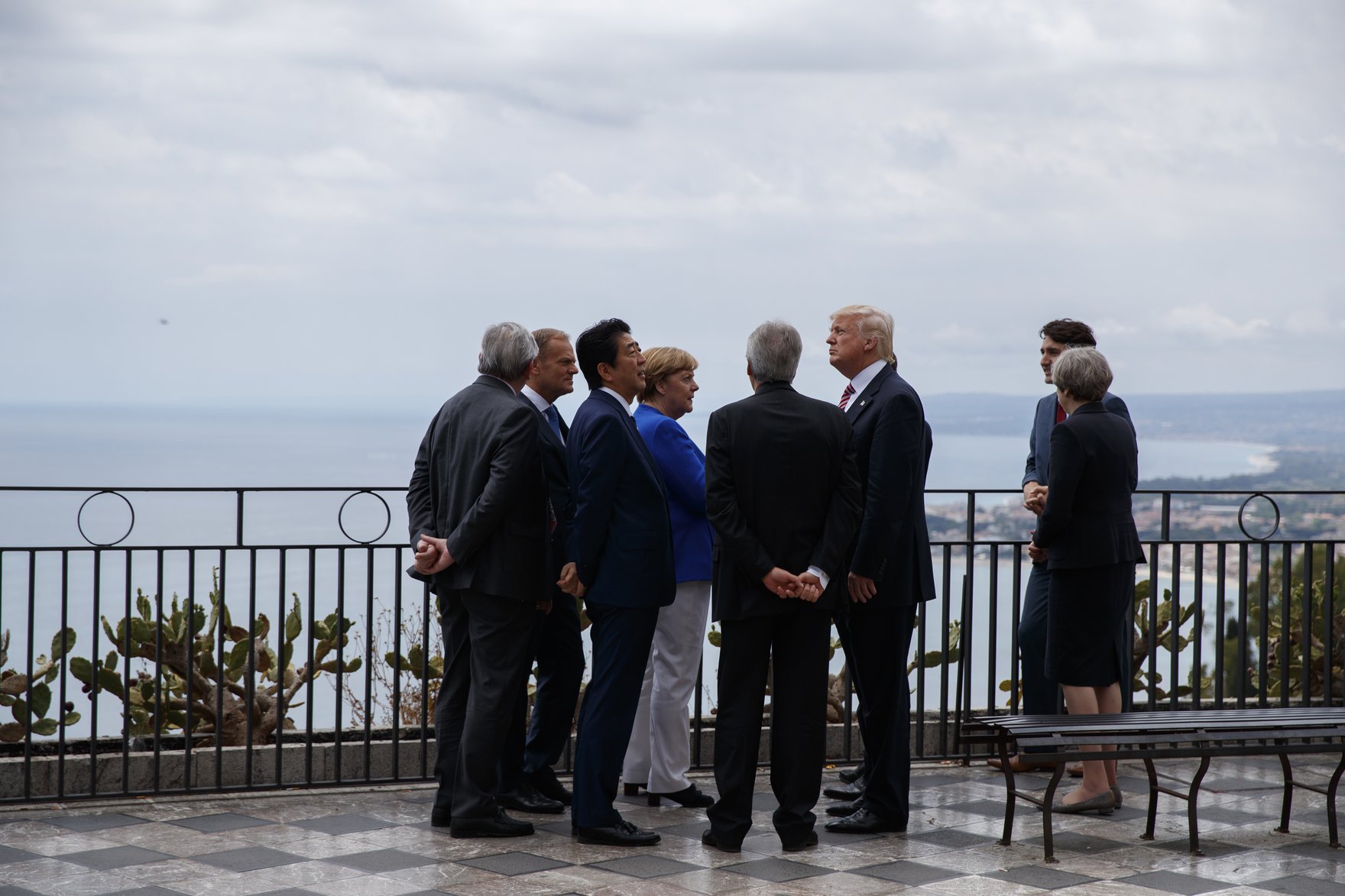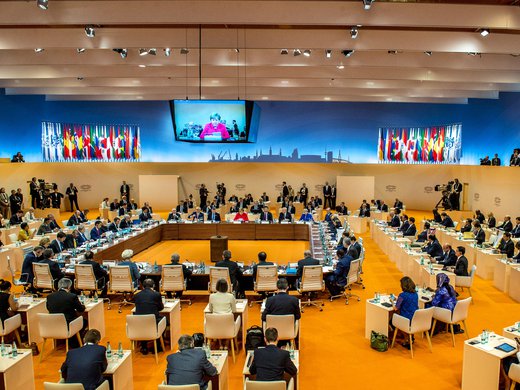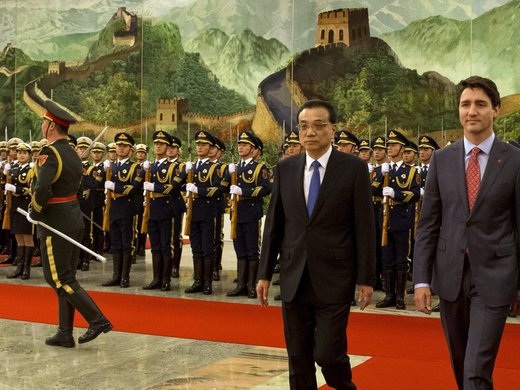The new year marks the start of Canada’s Group of Seven (G7) presidency, which promises to be a test of global priorities, multilateral relationships and — given the Trump administration’s approach to international affairs — Prime Minister Justin Trudeau’s diplomatic skills.
Trudeau’s challenge reflects the very nature of the G7: it runs on a consensus-based governance model. Each year, the group releases a statement outlining the shared goals and concerns of all members. Since Donald Trump took office, however, the United States — the G7’s largest member — has demonstrated preference for a decidedly different path at multilateral summits.
No amount of reasoned discourse will convince the current incumbent of the White House — or his advisers — that climate change is a clear and pressing danger, that domestic policies are needed to ensure that the benefits of trade are equitably shared if the global economy is to be preserved as an engine of growth and development, or that, for the first time since the end of the Cold War, there are credible threats to the integrity of democratic institutions. Nor would thoughtful debate reduce risks of global financial instability should the Trump administration insist on following through on its rhetoric to relieve the burdens of prudential regulation. It would be foolish to assume that the administration could be persuaded to strengthen the institutions that sustain international cooperation when the internal logic of an America-first policy deems such institutions irrelevant.
Given these obstacles, Trudeau confronts a stark choice: forego efforts to seek agreement on pressing policy challenges and focus on feel-good bromides, or eschew the political imperative of issuing a statement of common agreement and instead use the Charlevoix summit to engage in meaningful discussions.
This dilemma underscores the fundamental point that international fora such as the G7 are most effective and most useful when they address common problems, correct externalities in the global commons or promote the optimal provision of key public goods. Progress in these areas requires a modicum of agreement regarding the underlying diagnosis.
The prime minister is surely aware that such agreement is nearly impossible under the present conditions. Rather than attempting to cajole the United States into policy positions that others accept, he should, arguably, implicitly acknowledge the futility of engaging the Trump administration in such discussions. With no prospects of meaningful agreement, the prime minister should manage expectations accordingly by pre-announcing that he is returning the summit process to its origins — namely, as an informal discussion among leading, advanced economies sharing democratic ideals. No final statement would be issued at the end of the meeting. Relieved of the need to negotiate wording acceptable to seven, the limited time available to leaders could be used to forge strong bonds between members.
In a sense, such an approach is the evolution of the status quo. The United States has long been regarded — humorously or perhaps enviously — as the “G1” among international groupings; it decides what is in its interests, and others follow.
In the past, that approach was possible because the United States was by far the largest player in economic and geopolitical terms and because it espoused common values. The political powerhouse was a steward of the global economy, and promoted the idea that shared prosperity supported collective security. In effect, the United States was an unselfish hegemon, bearing the costs of international financial and economic stability. In return, it was able to mobilize the support of others to safeguard peace and security.
That bargain looks less certain today. The United States no longer dominates the global economy, although it remains the dominant force in geopolitical terms. The erratic policy pronouncements of the Trump administration, meanwhile, have weakened the cohesive power of shared values. And references to Trump’s America as “leader of the free world” sound increasingly anachronistic.
Although the shift in economic power away from the United States is likely to continue, the current ambiguity with respect to values is, hopefully, temporary, which introduces the need to keep the United States engaged in the G7. Political arm wrestling over consensus will not help, but breaking the mould of past summits might.
Looking ahead, the case for a disagreeing but effective G7 is a compelling one, although not without its faults. It is possible that efforts to neutralize the disruption engendered by the US administration could isolate Trump. And Canada, whose economic and strategic interests are inextricably intertwined with the United States, can’t afford to antagonize the White House.
But Canada also can’t afford to ignore the need for effective discussion on the world’s most pressing issues.
Renouncing the need for consensus could help to keep the small group of economic leaders in conversation, could steer the G7 away from becoming moribund in bureaucratic study groups (like the Group of Twenty) and, finally, it could mark Trudeau as a major player in international politics.



